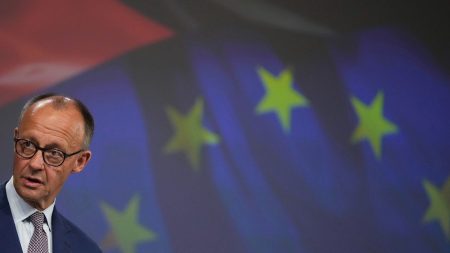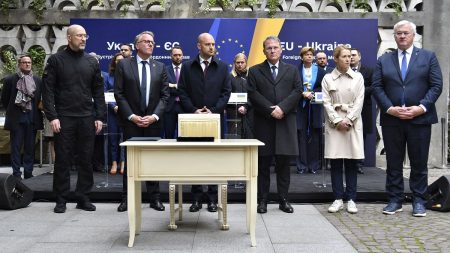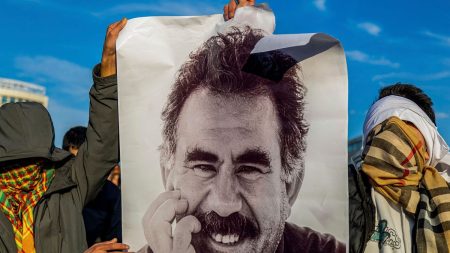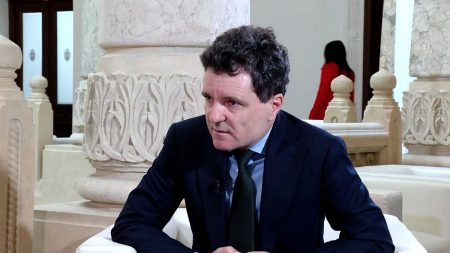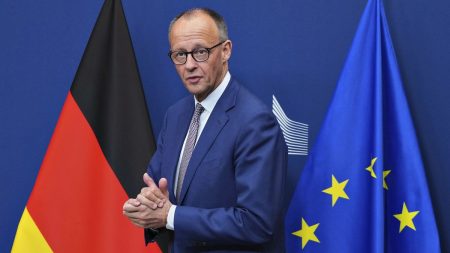The European Union finds itself at a critical juncture regarding its Syrian policy, navigating a complex landscape of humanitarian aid, sanctions, and the evolving political situation. Maria Luisa Fantappiè, a Middle East expert at the Italian Istituto Affari Internazionali, argues against premature actions like suspending asylum claims for Syrians, emphasizing the need for a viable political process within Syria before considering such measures. The EU’s cautious approach since 2011, balancing sanctions against the Assad regime with substantial humanitarian assistance, is now challenged by the emergence of new complexities, including the classification of certain groups as terrorist organizations. This delicate balance reflects the EU’s recognition of the ongoing instability and the precarious prospects for Syrian refugees.
Fantappiè’s perspective highlights the importance of a nuanced approach to the Syrian crisis, prioritizing long-term solutions rather than reactive measures. Suspending asylum processes or contemplating deportations before a stable political environment is established in Syria would be counterproductive and potentially harmful to vulnerable populations seeking refuge. The EU’s role as a significant provider of humanitarian aid underscores its commitment to alleviating the suffering of the Syrian people, a commitment that should be reinforced by a thoughtful and comprehensive strategy that prioritizes political solutions and the well-being of refugees.
The emergence of new political actors and alliances further complicates the situation, demanding careful consideration from the EU. Classifying certain groups as terrorist organizations, while potentially addressing security concerns, can also impact the humanitarian landscape and the ability to engage in constructive dialogue. The EU needs to carefully assess the implications of such classifications and ensure that they do not inadvertently obstruct efforts to establish a peaceful and stable Syria, which ultimately remains the key to resolving the refugee crisis.
This complex situation requires a multi-faceted approach that considers the intertwined elements of political instability, humanitarian needs, and security concerns. The EU’s long-standing engagement in Syria, marked by both sanctions and aid, reflects an awareness of these interconnected factors. The challenge now lies in adapting this approach to address the evolving dynamics on the ground, including the rise of new factions and the ongoing humanitarian crisis. A sustainable solution necessitates a political process that fosters stability and addresses the root causes of the conflict, thereby creating conditions conducive to the safe and voluntary return of refugees.
Beyond the immediate concerns of the Syrian crisis, the European Union is also grappling with internal matters. Discussions among newly elected European Commissioners highlight the ongoing process of shaping the EU’s agenda and priorities. This internal focus is crucial for maintaining the EU’s effectiveness as a global actor, ensuring that it is equipped to address complex challenges like the Syrian situation with a united and coherent approach. The EU’s internal dynamics and decision-making processes are therefore integral to its ability to respond effectively to external crises and promote stability in the region.
Finally, the spotlight on Europe’s busiest airport, a non-EU capital, serves as a reminder of the interconnectedness of the continent and the flow of people across borders. This seemingly unrelated fact underscores the broader context within which the EU operates, highlighting the mobility and interconnectedness of populations in Europe and beyond. The refugee crisis, in particular, exemplifies the challenges and opportunities presented by this interconnectedness, demanding a cooperative and coordinated approach to manage migration flows and address the needs of displaced populations. The EU’s ability to navigate these complexities will be crucial for its future stability and its role in the global arena.







